"In my experience, I’ve found that many farmers are really in tune with their environment and are experienced at adapting to local conditions. Good farmers are aware of the regulations they operate under and really work hard to meet their obligations to the environment”
– Joe Burgoyne-Smith.
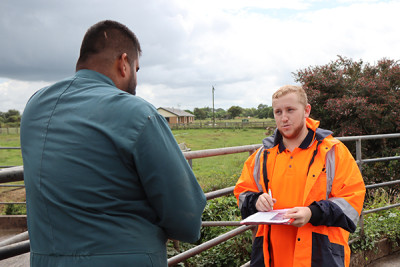
Joe collects details from a farmer about his farm and its effluent system
Having grown up on dairy farms in South Waikato gives Joe Burgoyne-Smith, a Rural Compliance Officer with Waikato Regional Council, a first-hand understanding of farm life including milking, general farm work and the day-to-day challenges faced by farmers.
Joe is part of a team of 13 Waikato Regional Council officers who monitor compliance with environmental regulations in rural settings across the Waikato region.
Joe has been with Waikato Regional Council for more than a year, having previously held a conservation role at the Waitomo Caves. He holds an environmental science degree.
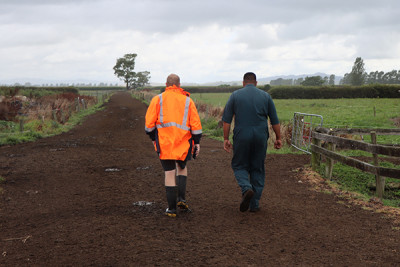
Joe and a farmer during an inspection of a farms’ effluent system
The main aim of his team is to ensure farming activities are carried out in an environmentally sustainable way. There is also a focus on the forestry industry.
“With about 3700 dairy farms in the Waikato, we pay particular attention to the control of dairy effluent and protection of waterways,” says Joe. “This includes stock exclusion, which is about using fencing to keep stock away from water bodies.
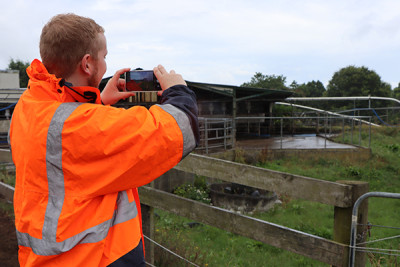
Joe takes a photo for his farm visit report
“The Waikato is a big place, so we have a lot of ground to cover, over time we manage to complete inspections of all the farms in the region.”
According to the rules Waikato farmers operate under, effluent should be contained in an appropriately sealed system and there shouldn’t be any discharges that are detrimental to the environment.
Farmers can make good use of effluent as a fertiliser, but there are rules guiding how this can be done safely. For example, effluent should not ‘pond’ in any depth so that seepage of contaminants to the water table, or runoff to surface waterways, does not occur.
“For well-managed farms with good systems in place, visits might be as infrequent as once every five years, but obviously we pay more attention to farms where there are issues.”
Joe and other rural compliance colleagues spend several days each week on the road, maybe visiting up to four farms each day, though if there are compliance issues they may stay for several hours on property. This is followed by time in the office to write up notes, coordinating with other team members and planning for future field visits.
“One of the best things about this job is the opportunity to see new places and meet new people,” says Joe.
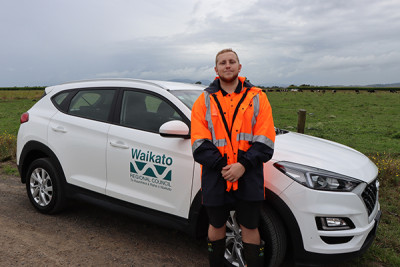
Joe prepares to head back to Waikato Regional Council following a farm visit
“The job takes you all over the Waikato: you could be in the Hauraki Plains one day and the King Country another.
“It’s interesting to see the different ways farms are managed given the factors they need to consider such as varying soil types, geography, and weather.”
Field visits involve talking with farmers, inspecting components of farm infrastructure effluent systems such as sand traps, solids bunkers and effluent ponds, following up on any outstanding issues and noting any unauthorised effluent discharges.
“We take detailed notes during farm visits so that we have accurate documentation of the actual situation.
“Often it is just a case of recording well-run systems or reminding people about the rules as they apply to their situation.
“In my experience, I’ve found that many farmers are really in tune with their environment and are experienced at adapting to local conditions. Good farmers are aware of the regulations they operate under and really work hard to meet their obligations to the environment.
“While in many cases there are no environmental issues, often there may be something identified that needs to be followed up. Often this relates to investment in infrastructure or improvement in system management.
“Farmers always have opportunities to make improvements, but unfortunately it is sometimes our intervention that makes them prioritise those improvements.”
We use a wide range of regulatory tools to encourage positive behaviour change on farm, Joe says. That ranges from education through to graduated enforcement tools. While some farmers have ended up in court, these are the more serious cases and not representative of the majority of farmers.
“Most people want to do the right thing,” he says.
“We are always wanting to work with farmers and the wider rural sector about understanding the rules that are in place to protect the environment. Though we are the regulator we want to engage positively to bring about positive outcomes.”
Farming activities can be carried out under a regulatory framework that can be quite complex, including the Resource Management Act, Waikato Regional Plan and National Environmental Standards. For example, effluent irrigation is a permitted activity, meaning that no consent is needed, though there are clear conditions that still need to be followed to protect the environment.
“Rural activities represent the largest industry in the Waikato region, so it’s important to ensure that as businesses they understand and are complying with the rules designed to protect the environment from unsustainable impacts.”
The council recommends that farmers work with accredited effluent specialists to set up or update their effluent systems if improvement is needed.
Check out our Farmer’s guide to environmental rules in the Waikato region for more information which includes frequently asked questions, details around rules and compliance, training options, and other useful information.

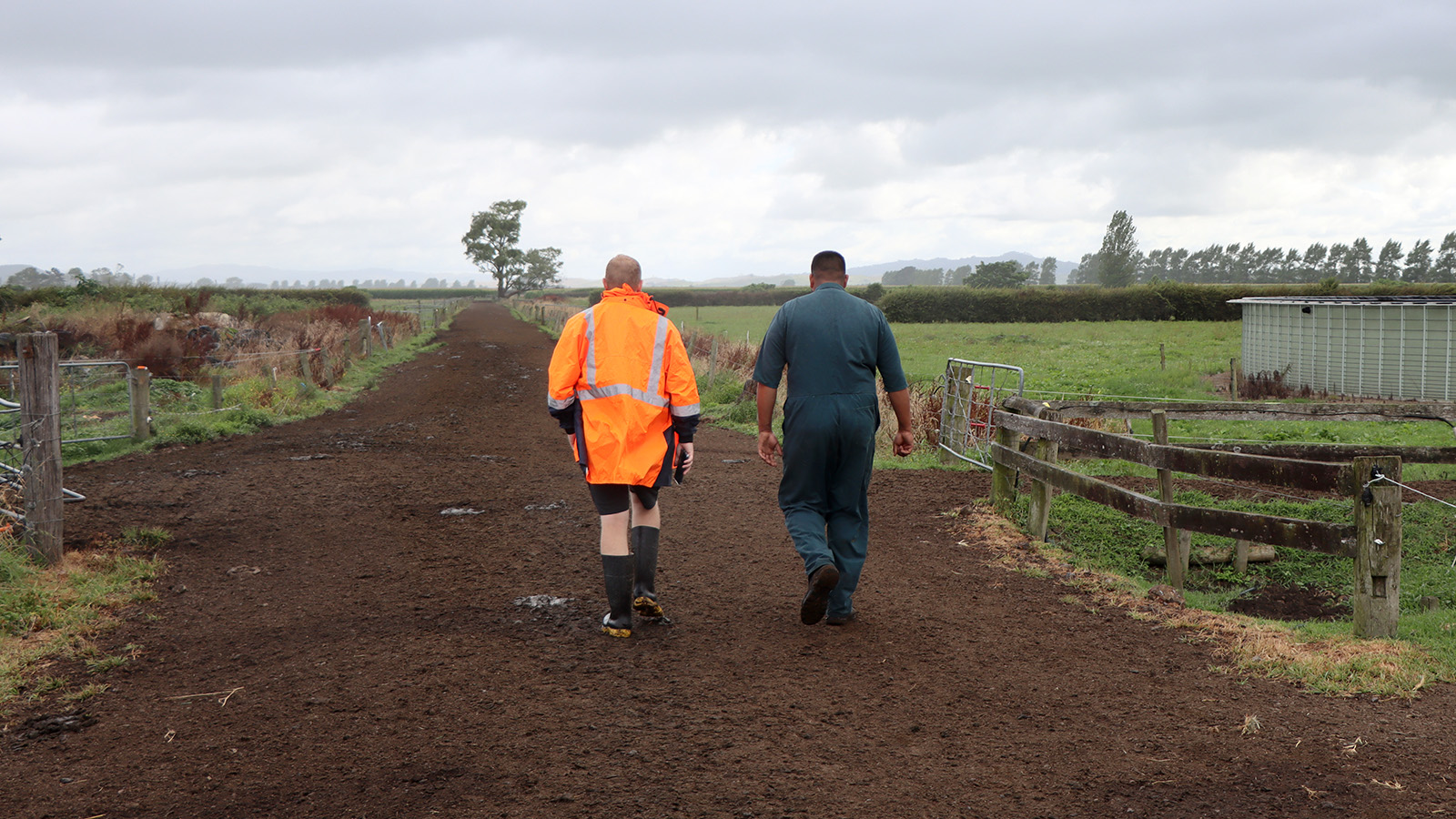

To ask for help or report a problem, contact us
Tell us how we can improve the information on this page. (optional)